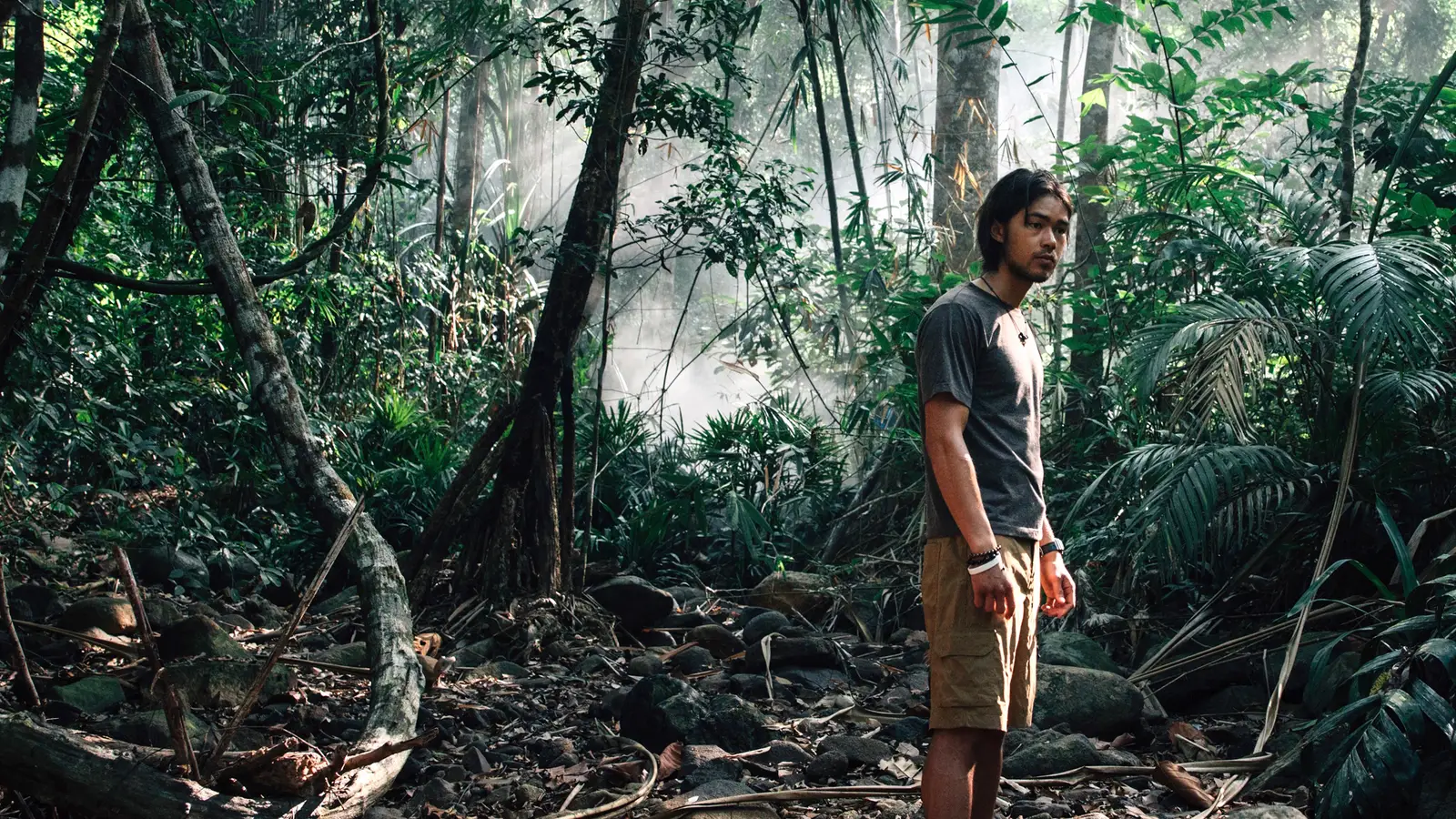Copyright Screen Rant

While the weekend box office was dominated by Chainsaw Man, which far exceeded most industry projections, there was another film to arrive in limited release called Last Days. This indie debuted at the Sundance Film Festival to lukewarm reviews, with Vertical Entertainment obtaining the distribution rights back in July, and setting it for limited release this weekend. The film debuted with a not-great 27% on Rotten Tomatoes earlier this month, though it has improved slightly since then, with its current rating at 30%. It is worth saying, though, that those who have seen it appeared to enjoy it, with the film earning a 70% audience score from more than 50 fan reviews. Last Days, which has a unique Keanu Reeves connection that was unveiled during its Sundance run, marks the indie return of director Justin Lin, who made his solo feature film debut 23 years earlier at Sundance with Better Luck Tomorrow. Much like his debut - based on an early 90s murder - this film is also based on a tragic killing. The Life Of John Allen Chau Before His Mission To North Sentinel Island Last Days is based on the true story of 26-year-old missionary John Allen Chau, played by Sky Yang in the film. Born in Alabama and raised in Vancouver, Washington, Chau was the son of a European-American mother and Chinese-American father. He earned a Bachelor's degree in exercise science from Oral Roberts University, the Tulsa, Oklahoma evangelical school where both his parents had met. While his mother was a devout Christian, his father Patrick was attending the medical school on an Army scholarship. The 2019 Outside Magazine article "The Last Days of John Allen Chau" by Alex Perry, which the film was adapted from, revealed that John developed a fascination with living on a deserted island as a boy, after reading Robinson Crusoe. While his father (played in the film by Ken Leung) laughed off the notion, it stuck well into adulthood for John. He participated in a missionary trip to Mexico to help build an orphanage as a junior in high school, and upon his return home, he started researching the most remote tribes on Earth, when he found the Sentinelese tribe. His father Patrick told Perry that his son believed he had, "finally found the last frontier of unexplored land and people untouched by Christianity," adding, "he was excited, as if the place and the people were specifically left for him." One of John's biggest inspirations was Jim Elliot, a 28-year-old missionary who, along with four other Americans, was killed by the Huaorani tribe in Ecaudor in 1956. Like the Huaorani tribe, the Sentinelese were thought to be one of the last group of "uncontacted" people on the planet, with a long history of violence towards outsiders. The Deadly History Of The Sentinelese Tribe The Sentinelese Tribe live on North Sentinel Island, part of the archipelago known as the Andaman Islands in the Bay of Bengal. North Sentinel Island lies roughly 35 nautical miles from the Andaman Islands capitol of Port Blair. Very few successful expeditions to the island have been recorded, with estimates of the island's population varying from as low as 15 to upwards of 500. The Indian government declared North Sentinel Island a "tribal reserve" in 1957, prohibiting any travel within three nautical miles of the island, while also prohibiting any kind of photography. Still, there has been a handful of peaceful expeditions to the island, including a 1991 visit by Indian anthropologists Triloknath Pandit and Madhumala Chattopadhyay, but official Indian visits stopped in 1997. Still, while peaceful visits have happened, the Sentinelese's propensity for violence has been proven more often than not. The first instance dates back to 1896, when a prisoner escaped from Great Andaman Island, only to land on North Sentinel Island, with his body — riddled with arrow piercings and a sliced throat — discovered days later. The ship MV Primrose ran aground just north of North Sentinel Island in 1981, stranding the small crew of 31 men who had to keep watch 24 hours a day after seeing Sentinelese preparing to board the boat, though strong waves prevented them from doing so. The crew was ultimately airlifted to safety a week later. The abandoned ship is believed to be the source of the iron for the Sentinelese weapons, with a salvage crew reporting friendly exchanges with Sentinelese people who boarded the ship in the months they worked on it. The tribe also killed Indian fishermen Sunder Raj and Pandit Tiwari in January 2006, after the pair had been trying to illegally harvest crabs from the island's shores. They were reportedly murdered with axes and the tribe also attacked a Coast Guard helicopter sent in to investigate the death. Despite all of this violent history, John Allen Chau took part in a missionary "boot camp" training by the Kansas City-based evangelical group All Nations in 2017, and made his way to Port Blair in October 2018, with plans to visit North Sentinel Island, which he called "Satan's last stronghold" in one of his final journal entries in mid-November 2018. The Death of John Allen Chau Chau (pictured above with Ubuntu Football Academy founder Casey Prince in October 2018) paid two fishermen the equivalent of $400 to take him near North Sentinel Island on November 15, 2018. He ignored warnings from the fisherman and made it to shore with a waterproof Bible in a canoe, bearing gifts of fish for the islanders. Here's part of his journal entry from November 15, 2018. "Two armed Sentinelese came rushing out yelling at me—they had two arrows each, unstrung, until they got closer. I hollered 'My name is John. I love you and Jesus loves you. Jesus Christ gave me authority to come to you. Here is some fish!'" He added in the same entry that he was, "disappointed they didn't accept me right away," adding he would "try again later." A subsequent journal entry - where he called the island, "Satan's last stronghold" - ended when a, "little kid shot me with an arrow, directly into my Bible which I was holding in front of my chest." The next day — November 16, 2018 — he wrote a letter to his family, asking them to, "not be angry" at the tribe if he is killed, adding, "don't retrieve my body." He also wrote a final entry in his journal, which he left with the fisherman and instructed them to abandon him. "Woke up after a fairly restful sleep, heading to island now. I hope this isn’t my last note but if it is: to God be the glory—I’m heading back to the hut I’ve been to. Praying it goes well." According to NDTV, the fishermen returned on November 17, 2018, and saw Sentinelese dragging a body to the beach, which resembled Chau, and burying it in the sand. The fishermen returned to Port Blair and handed Chau's journal over to his friend, a Christian preacher, who contacted his family. An attempt to recover Chau's body was met with hostility and ultimately abandoned. Both fishermen were arrested for illegally taking Chau that close to North Sentinel Island. All Nations, the evangelical organization that trained Chau, called him a "martyr," and faced harsh criticism for depicting him as such. Another organization, Survival International, criticized Chau's expedition since he could have easily introduced the isolated tribe to pathogens they would have no immunity from, due to their reclusive nature.



